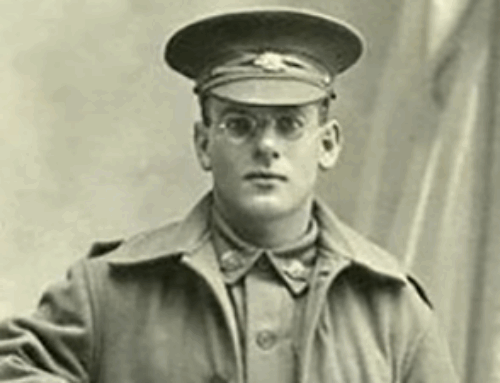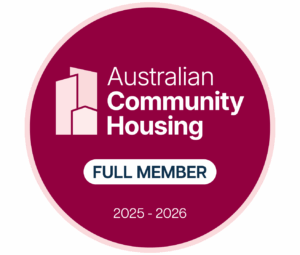 Vietnam Veterans’ Day is held annually on the 18th of August to recognise and show gratitude to the veterans of the Vietnam War. Though it’s thought ANZAC Day commemorates our ‘greatest’ conflict, in fact the living legacy of the Vietnam War is much greater. It’s for this reason that commemorations such as Vietnam Veterans’ Day are so critical. On the 18th of August 1966 the Battle of Long Tan unfolded and it’s on this anniversary that Vietnam Veterans’ Day is recognised.
Vietnam Veterans’ Day is held annually on the 18th of August to recognise and show gratitude to the veterans of the Vietnam War. Though it’s thought ANZAC Day commemorates our ‘greatest’ conflict, in fact the living legacy of the Vietnam War is much greater. It’s for this reason that commemorations such as Vietnam Veterans’ Day are so critical. On the 18th of August 1966 the Battle of Long Tan unfolded and it’s on this anniversary that Vietnam Veterans’ Day is recognised.
Australia’s first entry into Vietnam for the War was in July 1962 and troops remained their for over a decade until the last platoon departed in June 1973. It was Australia’s longest military engagement of the 20th century. Over 60,000 Australians served in Vietnam, many of who were involuntarily conscripted in their late teens and returned home forever changed. Of those who served, 3000 were wounded and 523 lives were lost.
While Australia’s last remaining ANZAC diggers have long since passed, there are still thousands of veterans living with the impacts of the Vietnam conflict. According to statistics from the Department of Veterans’ Affairs on conditions affecting Vietnam war veterans, there are currently more than 47,000 veterans receiving treatment for over 200,000 different conditions resulting from their service in Vietnam. On average, each of those veterans suffers from at least 4 conditions, ranging from hearing loss and tinnitus to hypertension, substance abuse, and of course anxiety disorders and PTSD.
As is the case with all wars, the ‘why’ is always difficult to explain. In the case of Vietnam, Australia’s involvement came down to politics and power and our involvement in the Vietnam war became the cause of great conflict, characterising much of the social and political history of the country in the late 1960s. The Australian War Memorial’s detailed history on the Vietnam War is a fascinating read for those wanting more background on the conflict.
For surviving veterans the legacy of these intense battles is long lasting. The earliest records of how trauma impacted mental health can be traced back to the beginning of time. However, the impacts of war and conflict started to gain clinical recognition in the 1970s as US veterans of the Vietnam War (along with Holocaust survivors and sexual trauma victims) reported strikingly similar symptoms and began to receive clinical diagnoses of the condition. It became officially recognised in 1980 as Post Traumatic Stress Disorder by the American Psychiatric Association – or PTSD as it is now widely known.
Of the more than 202,000 conditions suffered by Vietnam veterans today, PTSD is one of the most significant – falling into the top three along with hearing loss and tinnitus. Almost 19,000 veterans are receiving treatment today for PTSD in one form or another, more than 50 years after the last troops departed Vietnam. Its prevalence amongst the veteran community cannot be denied with symptoms exacerbated for many as commemorative days like ANZAC Day, Remembrance Day and Vietnam Veterans Day occur.
Carry On and Veteran Housing Australia believe every veteran matters and their work ensures nobody falls through the cracks. For those living with PTSD, a secure and stable home environment is crucial. The condition affects the nervous system and veterans experiencing symptoms of PTSD often struggle with a sense of things being unpredictable, uncertain and uncontrollable. The erratic nature of the condition can be disruptive to everyday life and many veterans are left vulnerable to homelessness as a result.
Being connected to these organisations ensures veterans who aren’t coping can be supported and transitioned to a place of stability and comfort via the pathways they need. For some this means accessing crisis accommodation until their next steps can be worked out. For others it’s a matter of accessing appropriate veteran funding, benefits and other supports such as affordable housing solutions. These allow them to get back on their feet and start to rebuild their lives in ways that support their physical, mental, social and emotional wellbeing.
The purpose of Vietnam Veterans’ Day is not to open old wounds, or having to manage triggers of traumatic memories, but to make space for the nation to pause and reflect on the shared experience of those who took part. The ANZAC portal beautifully captures the intent of the day by stating “We honour those veterans who lost their lives during battle, returned home wounded, ill or injured, lost their lives in the years since they returned, still carry the physical and emotional scars of their service. We also pause to reflect on the impact of service on veterans’ families.”
For information on services and events in your local area this Sunday, contact your local RSL or state memorial. If you’re a veteran, know a veteran or are the family member of a veteran who is going through difficulties, you can contact the Australian Government’s Department of Veterans’ Affairs for assistance or contact us at Veteran Housing Australia and we can point you in the right direction.



